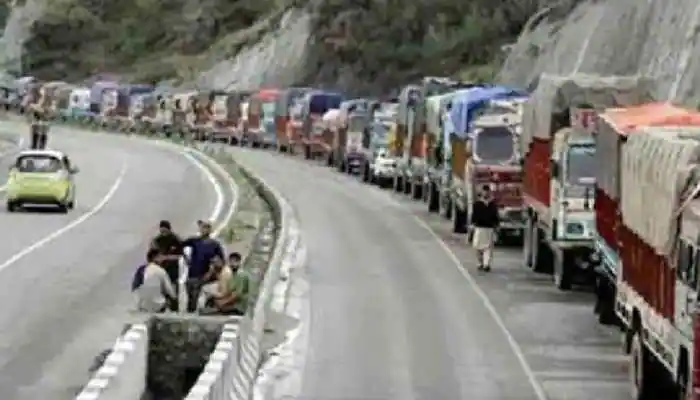Many national highways, and expressways have changed the road map of India by connecting the most remote places to the metro cities. These projects have enhanced the road infrastructure manifold, and have made commuting easy. Similarly, an effort is being made to enhance the Jammu-Srinagar National Highway, which connects the Union territory with the rest of the country. To make commuting easier and better for travellers, the National Highways Authority of India (NHAI) has been working relentlessly to make roads better. Officials are monitoring the progress of the work on Srinagar-Jammu NH and soon commuters will get to travel and reach their destination much faster.
The situation in J&K changed on August 5, 2019 – when the Centre announced its decision to abrogate the state’s special status and bifurcate it into two Union Territories. The government embarked on a mission to connect Kashmir with the rest of the country through road, air, and railways. As of now, nearly 100 flights operate from Srinagar international airport daily, the train to Kashmir is not that far away and the Srinagar-Jammu NH within a year or two would become a four-lane express highway.
Shyama Prasad Mukherjee Tunnel is not only India’s longest highway tunnel (9 km long) but also Asia`s longest bi-directional highway tunnel. It’s also known as the Chenani-Nashri tunnel. It has reduced the travel time between Nashri and Chenani from two hours to mere 15 minutes.
Similarly, the 8.5 km long Navyug Tunnel at an elevation of 1,790 m in the Pir Panjal range has reduced the travel time between Qazigund and Banihal to 15 minutes from nearly two hours. Nandni Tunnels, the series of four highway tunnels on Jammu-Srinagar NH in Udhampur district have cut down the travel time by at least one hour.
The distance between Jammu and Srinagar cities has been reduced from 300 km to 260 km and the journey which used to take 10 to 12 hours in 2019, is covered within 5 to 6 hours in 2022.
The four-lane highway corridors from Srinagar to Qazigund and Jammu to Udhampur have made travel faster and easier on NH-44. J&K Chief Secretary Arun Kumar Mehta is personally monitoring the progress of the work on Srinagar-Jammu NH.
In a review meeting held earlier in October, Mehta directed the NHAI to follow all deadlines for clearing of muck, improvement of road surface, completion of the vital T-5 tunnel, and widening of the Ramsoo-Rampari-Sherbibi stretch on NH-44.
He said “Once the T-5 tunnel is completed, it will reduce the travel time between Banihal to Ramban – treacherous mountainous terrain – from three hours to 25 minutes. The T-5 tunnel would bring Jammu and Srinagar closer.”
The improvement in the condition of Jammu-Srinagar NH has punctured all the narratives about this highway being an unnatural route. The new tunnels and the expansion of the highway are major steps towards “completing the integration of Kashmir with the Union of India.” The NH-44 turning into an express highway has shattered the myth about Srinagar-Muzzafarabad Road being the natural route to Kashmir.
The government has also taken up the work on Mughal Road which connects South Kashmir with the Jammu region. This road too will be developed into an all-weather highway to end Kashmir’s status of being a landlocked Valley.

